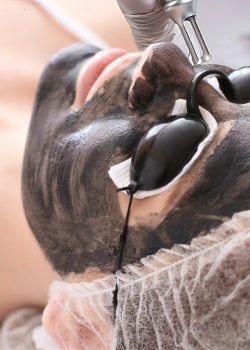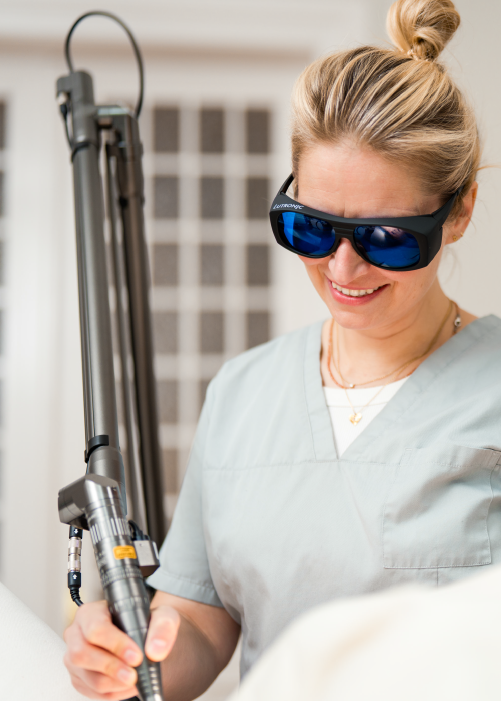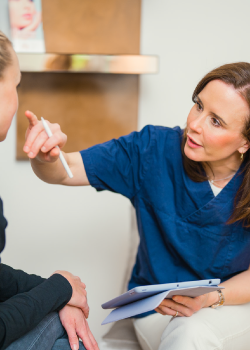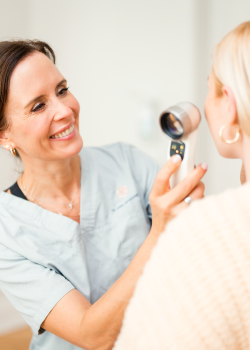Treatment Duration | 20-30 Min |
|---|---|
Socially Presentable | immediately |
Durability | – |
Pain | none |
Interval
| individual
|
Contraindications | none |
|---|---|
Preparation | blood test, ultrasound
|
Aftercare | none |
UV abstinence
| none |

The effects of hormonally induced skin changes range from fine dryness lines to increased skin sensitivity and a loss of firmness and radiance.² These may result from declining estrogen or testosterone levels, cycle-related fluctuations, or hypothyroidism.
Even in adulthood, acne can reappear. This form is caused by hormonal imbalances — for example, by cycle-related flare-ups in women. The systemic cause of acne lies in the relative overproduction of androgens or an altered response of the sebaceous glands to hormonal signals.³
In androgenetic alopecia, the hair follicles are hypersensitive to the hormone dihydrotestosterone (DHT), a breakdown product of testosterone. The hair becomes thinner and may fall out completely in some areas, as the growth phases shorten and eventually stop. Commonly affected areas include the crown, temples, and top of the head.




Doctors with Heart and Experience
Modern Dermatology & Aesthetics
Heilwigstraße 33, 20249 Hamburg
We use cookies to optimize our website and our service.
Under settings, you will find detailed information and can make your choices. You can revoke or adjust your selection at any time in the cookie manager at the bottom right of the page.